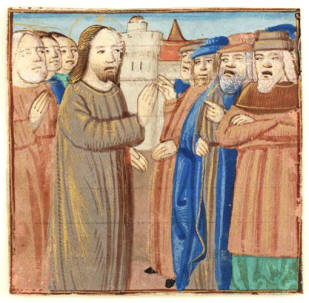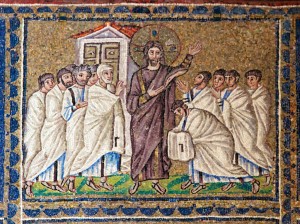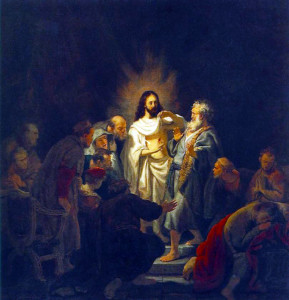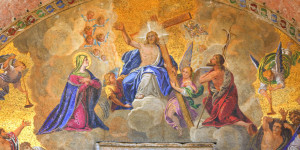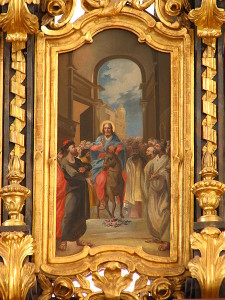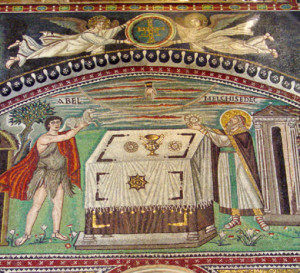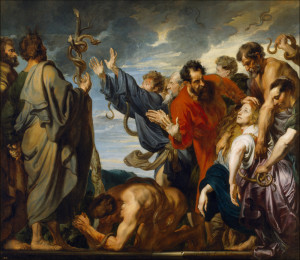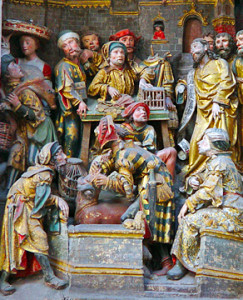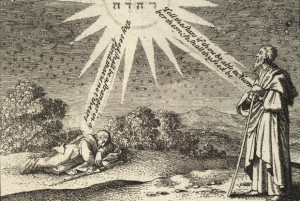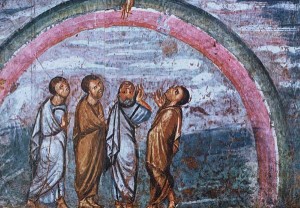Thoughts on Today’s Lessons for April 26, 2015
First Reading: Acts 4:5-12Peter has come a long way since having denied Jesus three times on the night of Jesus’ arrest. Peter and John have been arrested by the Temple authorities, who were upset because they healed a paralyzed man and have been preaching the resurrected Christ. This time Peter speaks with bold confidence. He declares that the disciples are healing though Jesus, whom God raised from the dead as the cornerstone of salvation. What changed Peter? Sent forth by the risen Christ to “feed my sheep,” he is filled with the Holy Spirit.
Psalm: Psalm 23
When Christians read these familiar verses, we tend to visualize the loving face of Jesus as the Good Shepherd who walks beside us. After all, Jesus declares himself the Good Shepherd in the verses of John’s Gospel that we hear today. Originally, however, the people sang this Psalm as a hymn of praise to the God who brought them out of exile and led them home, serving them a lavish banquet while their vanquished enemies could only look on.
Second Reading: 1 John 3:16-24
Jesus loved us so much that he laid down his life for us. But wait! “And we ought to lay down our lives for one another”? That makes things a little more complicated! Just as God loves us, we are to love each other, to help our brothers and sisters in need, not just in what we say but in what we do. We are to be not only sheep, but shepherds, too. Filled with God’s love, we are called to be bold, just as Peter was bold, fired by the Holy Spirit just as Peter was inspired.
Gospel: John 10:11-18
In its context in John’s Gospel, this seemingly simple “Good Shepherd” narrative looks somewhat like Peter and John in Acts: The Pharisees are angry because Jesus healed a blind man on the Sabbath, and they are alarmed that people are beginning to speak of Jesus as the Messiah. Seen in this light, Jesus is pushing back. He likens the people to helpless sheep, and the Pharisees to wolves who prey on them. In words that the writer of John’s letter will recall, Jesus declares that he will lay down his life for the sheep – all the world’s sheep – and that he will live again.

